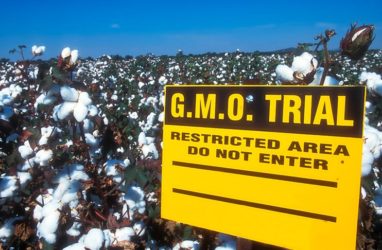
The popularity of organic cotton has grown substantially in recent years. Consumers are increasingly worried about the environment and about harmful substances in the products they buy for themselves and their families. For them, organic foods and textiles are good choices, and are products for which they are willing to pay a premium. But, in return for that extra investment, consumers expect the organic products they buy to be genuine and verifiable as such. New testing from OEKO-TEX helps companies throughout the global supply chain easily test their organic cotton products for GMOs (genetically modified organisms), a molecular-level indicator of whether or not cotton products actually meet a fundamental definition of organic.
Today, about 70% of cotton globally is genetically altered. For example, some forms of cotton have been engineered to be herbicide-resistant. Others have been infused with an insecticide to kill pests like boll weevils. While the industry can make strong arguments in favour of these cotton DNA modifications, the producers and consumers of organic cotton reject them. They place greater value on the environmental, social, and product safety paybacks that they perceive organic cotton offers.
Tested organic cotton increases confidence in the final product
To qualify as organic and to be marketed as such; cotton must meet a comprehensive list of criteria governing the cultivation, processing, and segregation of the cotton. One major requirement is that the cotton plants cannot be genetically engineered. With today’s complex, global, multi-sourced supply chain, how can a manufacturer be confident that organic cotton products are not contaminated with non-organic cotton so that customer and consumer expectations as well as regulations are consistently met?
New GMO testing by OEKO-TEX® provides a straightforward manner to test for genetically modified organisms in organiccotton. Samples are analyzed using qPCR (real-time polymerase chain reaction) technology; which can identify known genetically modified materials at a limit of 0.1%. Test results clearly indicate whether these GMOs were detected or not. Organic cotton products seeking STANDARD 100 by OEKO-TEX®certification will be required to undergo GMO testing. GMO testing is optional for other products. Currently, the GMO testing technology is limited to cotton.
“We learned in our ‘The Key To Confidence’ study; that consumers who buy eco-friendly clothing and home textiles are likely to verify claims”; says Georg Dieners, OEKO-TEX® General Secretary; “The new GMO testing gives manufacturers and marketers confidence ;that their organic cotton products meet regulatory and; consumer expectations with regards to GMOs as well as the independent, traceable documentation to prove it.”


